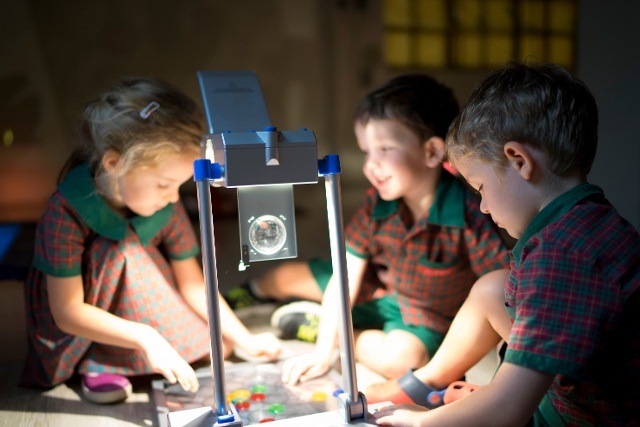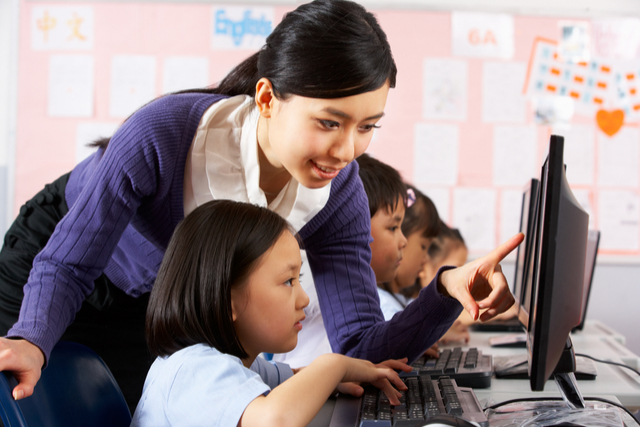The Changing Dynamics In Education
Children are natural-born scientists with an innate desire to explore, form hypotheses, experiment, observe and develop conclusions. Research proves that children’s learning through their senses has a strong connection to thinking and learning in science and discovery. We see it in the way an infant drops his or her toy from a high chair only to find out how it falls to the floor, or pokes clay to see how the material responds to his or her touch. With older children, we see a disposition to causal thinking where they experiment with different materials to either support or negate their hypotheses.
And yet, a few decades ago the idea that toddlers think like scientists would have been preposterous. Jean Piaget, the pioneer of cognitive thinking believed that children are illogical, irrational, ‘pre-causal’ and limited to here and now. This thinking informed curriculum design and pedagogical thinking for many years in the past. It has however been proved wrong in the many research findings that provide hard evidence on the scientific nature of children’s thinking that proves beyond doubt that children are competent, coherent, structured and intentional in their thinking. They are also capable of abstract thinking and causal representations. This brings us to the question of whether the old pedagogical approach of content and skill-based learning is indeed in alignment with the way in which children think and learn. Does it really encourage complex thinking skills that children are born with or does it systematically diminish them over the child’s educational journey in pre-school and beyond? It also leads us to reflect on the ‘knowledge society’ we live in today, where the meaning of ‘knowing’ has shifted from being able to remember and repeat information to being able to find and use it.
According to Dr. Sharon Friesen, one of Canada’s most eminent and influential educators, “The model of education typical of the 20th century was effective for that era of human history, but the ‘knowledge society’ we now live in requires new thinking about what constitutes effective and engaging teaching and learning.”
The 21st-century skills are a set of abilities and dispositions that students need to develop in order to succeed in the information age. They include learning skills, literacy skills and life skills that encompass critical and creative thinking, collaboration, communication, flexibility, initiative, leadership, information and technology literacy to name a few.
Inquiry-based thinking and learning is an approach that meaningfully embraces the context of learning in the modern world and derives its roots in the research around children’s thinking. It was developed during the discovery learning movement of the 1960s in response to traditional forms of instruction that required learners to memorise information and connects strongly with the natural way in which children learn.
The traditional approach to learning was limited in its approach and effectiveness in developing the new age skills and competencies primarily because it emphasised facts and the acquisition of facts. The focus of learning was therefore on the teacher who transmitted these facts and the emphasis was on the ‘right answer’. In an inquiry-based model, the focus is on the learner and his or her interaction with peers, adults, environment and the overall context of learning. The teacher is a facilitator and offers opportunities and provocations for students to pose research questions, undertake projects and find answers and solutions based on data and experimentation.
For example, a teacher talks to a group of children on dinosaurs. She reads them books, does different kinds of art and craft to create mini dinosaurs, and even bakes dinosaur cookies. This is a very traditional thematic approach to learning. In an inquiry-based model, responding to the children’s interest in dinosaurs, the teacher will present provocations on species that are extinct, dinosaurs being one of them. She will facilitate hypotheses on the cause of extinction and the processes of evolution which will trigger an investigative process involving data gathering, collaboration with parents, experts on the subject, community resources etc. and the synthesis of evidence to support or refine the group’s thinking or generate new inferences on the evolution of species. Such higher order thinking spurs creativity, an understanding of causal relationships, analytical skills, statistical and scientific interpretations, collaboration and communication at a much more complex level as compared to a traditional thematic learning environment. There is a strong focus on the process of learning rather than on the learned facts and as such is able to be transferred to other contexts, issues, content and contexts.
Over the years, the inquiry-based pedagogy has inspired educational philosophies around the world.The Reggio Emilia approach in Italy with over 30 international networks in different parts of the world draws its pedagogy from the inquiry-based constructivist thinking that has gained ground in the last 5 decades. The International Baccalaureate (IB) programme that has become immensely popular all over the world amongst both local and private schools is also based on an understanding that inquiry-based learning is the most powerful way in which children learn.
The IB approach that started in 1968, grew from 7 schools in 1971 to more than 4000 schools in 2014. Increasingly, institutes of higher education are valuing candidates who have graduated from schools that subscribe to inquiry-based learning models. They see students who are resilient, knowledgeable, open-minded critical thinkers who have a higher propensity to tackle issues and are more creative in their ability to solve problems.
This approach to teaching and learning is powerful but is also challenging for both students and educators alike. It is an approach that requires all stakeholders viz. the student, the educators and the family to remain fully invested and committed to the process of learning. It is a social endeavor and is a true testament to the collaboration of social networks both in the school and the home environment, aligned to realise learning goals. This can sometimes be challenging for students who may want to focus on a more unidimensional approach to learning and assessment. But if education were indeed a reflection of life and not a preparation for it, then an inquiry-based approach to education is what families should be choosing to give their children a strong foundation in the early years of education.
To quote Jerome Bruner, “We call it “education”, the cultivation of ways of going from the past and the present into the possible”.
It takes a village to raise a child !
Join our WhatsApp Groups or Facebook Group to interact with parents about infant care/child care in Singapore..









